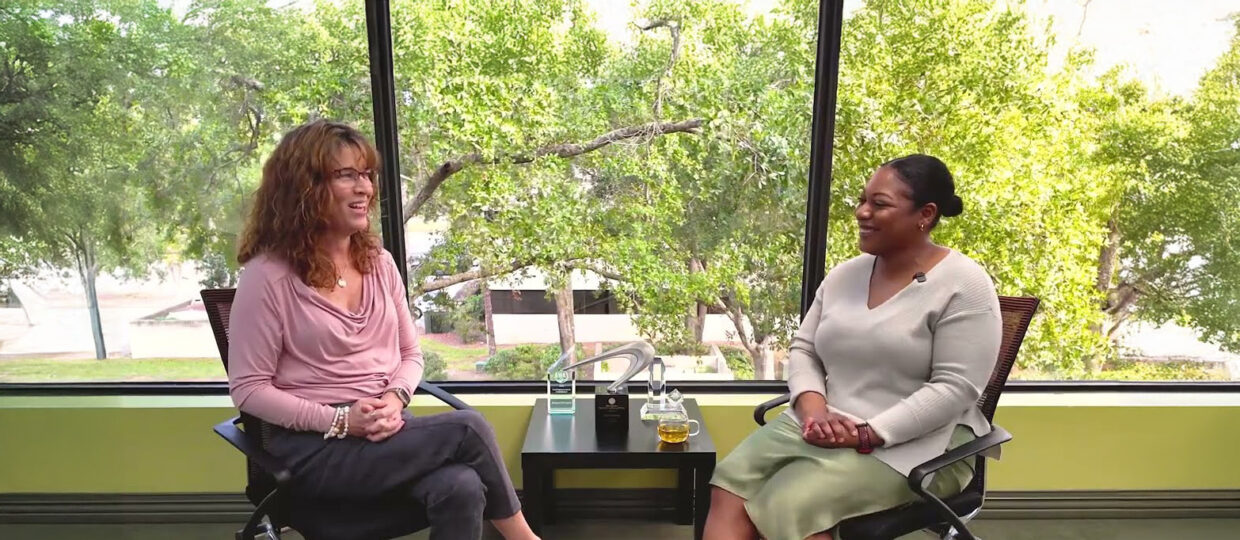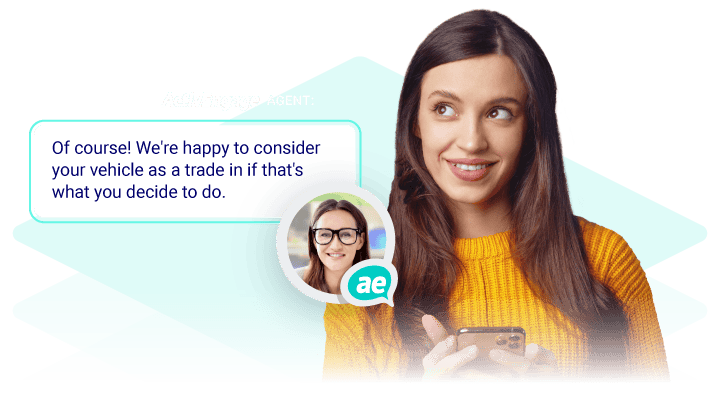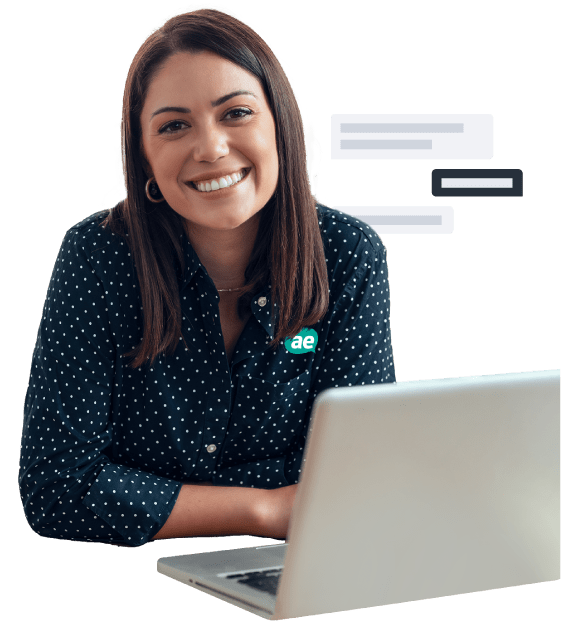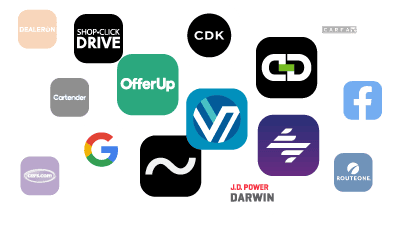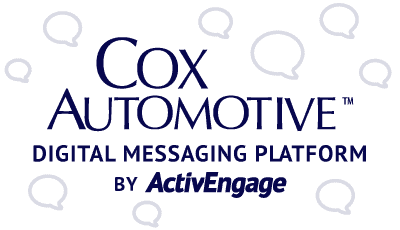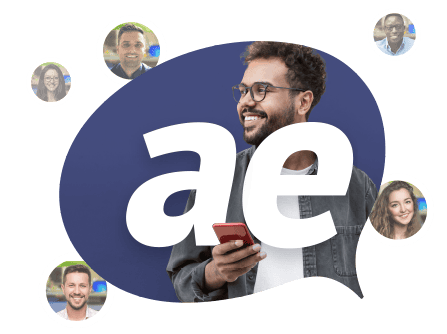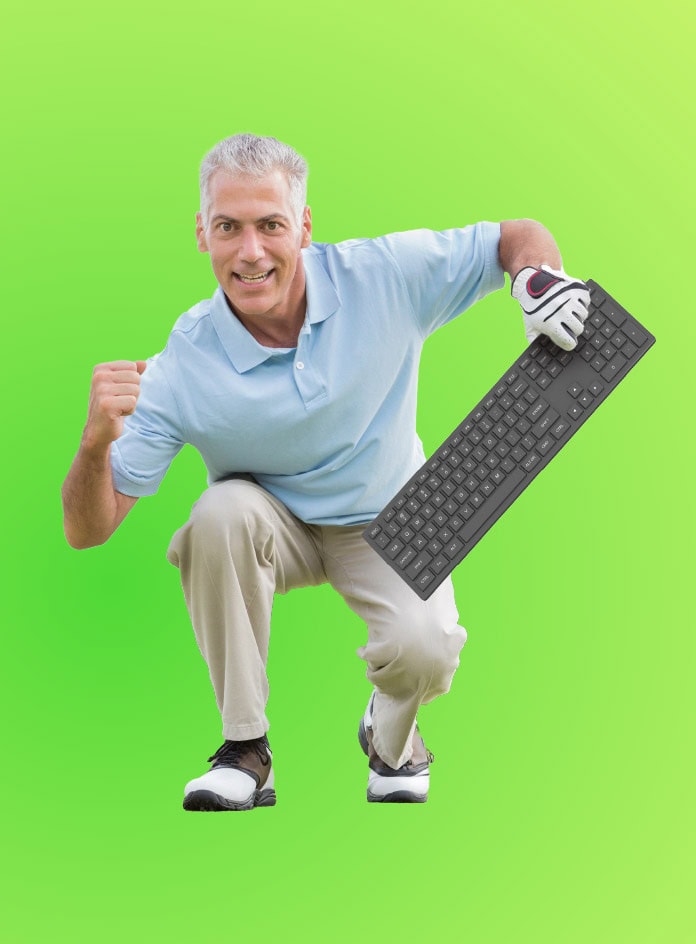ActivEngage Agents Build Trust and Drive Results for Car Dealerships
In this episode of Behind the Bubble in our Fully-Engaged series, we sit down with Camilla Richards, Senior Manager of Training and Quality at ActivEngage. With 13 years of experience, Camilla shares her journey from joining the company as an automotive live chat agent to senior manager of training and quality, focusing on building meaningful consumer-dealer relationships.
Camilla's Journey to ActivEngage
Camilla's story is one of transformation. Disheartened by her previous job, she joined ActivEngage in search of fulfillment. As a virtual engagement expert, she embraced the challenge of engaging in unscripted conversations with consumers and worked up to managing training and quality for the organization.
Training That Goes Beyond Scripts
Camilla's training philosophy emphasizes the human element. Instead of focusing solely on automotive retail knowledge, her program teaches new hires how to connect with consumers authentically and proactively. The four-week training program prioritizes relationship building and conversational flow over rote memorization or block-style information delivery to help guide automotive shoppers and obtain the most valuable information to pass through to dealerships. Highlights include:
- Week 1: Interactive lectures and gamified assessments.
- Week 2-3: Real-time chat training with expert feedback.
- Week 4: Advanced product and technical systems training.
The program reflects ActivEngage's dedication to innovation, evolving with technological advancements to meet the needs of modern consumers.
Why Conversations Matter
Camilla underscores the importance of meaningful, personal connections with car dealership customers to take advantage of every revenue-generating opportunity. "Every chat, every word, every time," a mantra she helped establish, remains the cornerstone of ActivEngage.
Welcome back, everyone. Thank you so much for joining us for another Behind the Bubble take. We have with us today Camilla Richards, our Senior Manager of Training and Quality here at Active Engage. Camilla, how long have you been with us? I've been with us for 12 years. 12 long years. Going on 13 this month.
So I should have just said 13. Congratulations! And Camilla, how did you come to join Active Engage? The story. Alright, so my roommate at the time, uh, started working for Active Engage, and she always came home late. So fulfilled, you know, and at the time, I was working in a position where I spoke with very depressed people.
Um, yeah, attempting to get money from, uh, attempting to get money from, you know, terminal people, uh, was just not where I wanted to be in life. Right? So she came home and I was like, you know what? I want to be just like you. Yeah, I want to be happy at the end of my day. So I made the move, and I haven't looked back.
Yes. It's been 13 years. Yeah. So Camilla joined us as a chat agent. A virtual sales associate at the time was the title. Yes. Um, and learn the conversation. Yes. With such a different company, um, almost 13 years ago. Yeah, it was a different, it was a different, Yeah. And, you know, now we're on the, you know, browser and things.
Before that, we were on a program, and that was an adjustment in everything. So yes, we've had many technological advances, innovation, for sure. Yes, absolutely. Um, the beauty of having your own development team is, uh, I can't say enough, so, so you work your way from chat associate. Through to team leader. Yes.
Um, eventually joining the training team. Yes. And, and then today, as we said, your senior manager of training and also quality. Um, so let's take training first. When we think about, you know, because this is a very strange thing that we do. We have unscripted conversations. So we have non automotive people.
talking to our dealers, consumers online, and building that relationship to move them down funnel and build the trust that encourages action, right? Yes. So how do we take non automotive people I remember sometimes we have people in class that did not know that Toyota made the Corolla. They come in all varying degrees of automotive knowledge, right?
How do we take someone from there to being able to have a conversation that generates revenue for our dealers? We teach them about having a conversation with someone. We don't teach them right at the off the bat about the vehicles. Really, we don't focus on that. We focus on the human element, you know, asking questions to guide the conversation.
Um, sharing information as far as like the vehicle information that is knowledge. Like we have that at our fingertips. We have, we're able to search for that. We're able to We have multiple resources and it's a learning process and we don't expect people to just know all about vehicles right off the bat.
It's a process. We don't rush it. Great. Wonderful. Yeah, because it's not a blind test. It's not a memorization type test, right? Yeah. Um, and just like education has changed through the years with technology and people have gone through school learning how to research and find answers. You know, what I know that we have discussed and we find kind of funny today is some of the AI tools that have come out to have these, um, Um, on dealers websites, they'll spit out a block of words and number one, we know people don't like to read that much.
Yes, that is too true. And number two, it's just shotgun, shotgunning facts that may or may not hit. Yes. So. You're absolutely right. That emphasis on how to have a conversation. And that's so important today, especially with millennials, Gen Z, the more people are brought up on technology. Um, can you tell us about some instances in class or in the training where you found there are holes in people understanding how to have a back and forth conversation?
You know, people kind of expect you to respond whenever you say something. Okay. And we take a very like, okay, yes, respond. Acknowledge the person. And then ask them a question because that kind of puts the ball in their court to respond to you. But that's always an interesting habit to break with people because they think, oh, I responded.
You should respond as a customer, right? With no question, with no question. So that's that's something that some people kind of have to get into the habit of. And once that happens, you kind of notice that. You do that in your real life, too. Yes. It's gonna, it's gonna translate, and it's gonna help you, and it's gonna work.
Yes. Yeah, it's funny, we hear from people who are like, the communication skills I learned in that role have helped me personally, they've helped me professionally, whether here or other places. places. Um, and it is interesting when you pause a moment to reflect on how you communicate and, and when a conversation is running smoothly versus when it's not.
And that's, that's the whole point. We want a smooth, good feeling encounter with that dealer in order for that consumer to be responsive when the dealer reaches out. So let me ask this question. Is it difficult to get contact information for a lead? Absolutely not. No. It is not difficult at all. So, we're in an environment where, um, Everyone knows what chat is at this point.
They know that, okay, in order for me to get this and that information, I may have to give my contact information. So they're already ready for that. So it really puts a focus on the conversation. Asking for the, the phone number and the email, yes, that is part of the job and you have to do that because that is the lead.
However, everything else, they're gonna, they're gonna purchase because of your interaction with them. Right. That's exactly, that's always been our approach. Yes. Right? Exactly. Is, is, Every time. You say every chat, every word. Every chat, every word, every time. Okay, now you have to tell the story there. Oh my gosh, okay, so, I was there when you did this, by the way.
I was on the floor as a VSA, okay, at the time. And you had like this eureka moment and you were like, you know what, you did a whole spiel. But all I really fully remember from the spiel is that we've gotta concentrate on every chat, every word, every time. Every time. And that just became our slogan. We had posters.
We hung it on the wall. We hung it on the wall. We like, every shot, every word, every time. And it is, to this day, a bazillion years later, it's still the one. And it still works in every single situation. I love saying that in every single class. I love that. Thank you. But it's true. Yes. Um, when a consumer is at home or at work, as we know, they are a lot of times having this conversation, every single word that you're putting back to them is meaningful.
It holds weight. Exactly. And so an AI spitting out a block of a marketing brochure is not meaningful. It's not, it doesn't do anything to build that connection. Um, and we understand, coming from an automotive background, to dump hundreds of leads on a dealership team to follow up, where those consumers felt nothing in that interaction.
They dump their contact because whatever, they can put their phone on silent, they don't even have to have the phone ring, and they can delete an email pretty fast. Um, That is not providing value. Right. Providing them an opportunity where that consumer felt something, they felt acknowledged and heard.
That's huge. Very. That differentiates this dealer. From all the noise that's out there, all the unoccupied websites, the unmanned websites, we like to say. And so, yes, every single word that we are using is critical. Yeah, I mean, and less is more in the conversation. Yes. You know, and it's always an interesting dynamic to get the word out.
You know, new hires to understand that concept because they want to be like, they want to do everything that we say to do, right? And what that translates sometimes is a paragraph, almost like the AI, you know what I mean? The AIs are just kind of staying in that first, you know, initial thing. Um, it's not about the block of information, you know what I mean?
It's how you piece that block together and make it, I don't know, um, Because I mean, if you're going through, uh, imagine a lot of people are on their cell phones, right? On a mobile device. It's got a small screen, unless you have like, you know, the Pro whatever from Apple. That's like a massive screen. But like, it's a small screen for the most part, right?
And, uh, What are they going to do? Scroll for days with your block of information? No. And are they going to remember what was at the top? Yeah, like, they're going to look for like words, like trigger words that you said that may have been what they were asking for. They might not even get the exact thing that you were trying to say.
They might not even notice that you asked a question. Right. You know, so. Short attention spans are a thing. It's a thing. Especially adult. Yes, it is a thing. Yeah. So high level training. Mm hmm. We have these beautiful souls who are so ready to connect with shoppers service and sales shoppers, so What is that outline look like day one week one week two?
How do we take them through that you said we focus on the relationship building first? Yes Okay, so our training is Initial training is a four week process. Now I know that always sounds kind of like, Whoa, chatting, customer service, four weeks. That sounds so crazy. Please understand. We did not start at four weeks.
We started, I think at what one week and with all the years of innovation and changes and updates, we have moved. to a four week process because of the way that we have changed the training process. So first week is really concentrating on lecture, but not your normal lecture. This is lecture with games, gamifying things.
Because adults, as adults, I was very surprised by this, but We like to play. We like games. We want to, we want to win something above that person. We're very competitive when it comes to the games. So we've gamified a lot of the assessments. Um, it's not so, you know, super strict. We are getting them on the console, which is our, Which is our product.
Um, we're getting them on the console within the first couple of days. They're seeing what they're going to do. They're monitoring other people that are doing the job already. So they're getting an idea. Like, we're just kind of triggering little things with them, you know? And going into the second week, we are all forgetful as adults.
So, going into the second week, what I expect for you to know is just The basics, the guidelines, the some procedures now throughout your entire career, you're going to always know about the procedures because it's something that we always talk about. Second week and third week. By the end of the second week, we're on real chats.
You're talking to a real customer. All alone? No, no, we are not leaving you alone. You are with someone for the entire four weeks. Okay. So you are getting feedback from a subject matter expert. Real time. They're on a call with you. They're guiding you through the whole process. Now, remember, we do not use scripts, okay?
We do use guidelines. We use, we teach you how to have a conversation with a customer. Yes, it's a flow. Perfect. Chat flow, you know? So, we do that second week, third week, and then going into the end of third and fourth week, we talk about our very specific process. Products like different things that we may have started using in the console, like new products, which is just a little bit deviated from the run of the mill everyday things that you might have to do on such as my drive.
Yes, service scheduling. Yes, these other products. Yeah, especially products where you have to use a different program or different companies system. Yeah. And so it's a lot of stuff. System learning. So of course, it's a lot more technical. So by the fourth week, we know we've established a relationship that we know, hey, you are great.
Like you can learn this technical stuff, the super technical stuff, not just conversations, not just like be having a personality in a chat, but doing the P's and Q's, you know? Yeah, absolutely. And I recall the way that we kind of, uh, because I think. A lot of our folks come from a support background where they're used to giving the answer.
Right? And so to kind of break that mindset and we teach wiggle room, always use wiggle room because we understand the dealer has to deliver on whatever it is we're saying. Um, we give them an overall education of, You know, shoppers tend to go to the OEM websites, the third party websites. And by the time they land on that dealer's website, they're ready for action.
Right. And so I think, uh, it corrects me if I'm wrong. That is what that kind of background education, understanding the shopping funnel, which is also a bazillion years old, but understanding that enables our C's, our customer engagement experts to, um, Dive right in. Do you have a trade? What is your time frame, right?
And do you find that these newbies, these green peas to the auto industry, do they struggle with answer asking those questions? Yes. Sometimes they might feel like, Oh, this is so aggressive. Like they're scared to ask things like, Do you have a down payment or a trade in to put towards a purchase? Because it's talking about money, right?
Or they, they might be afraid to talk about the price that the dealer has listed on, on their site. You know what I mean? So it's kind of like breaking that too, because we have to explain to them that this, the customer wants you to ask that they, sometimes, they're super proud of their trading. Yes. They want to tell you, Hey, I have only 10 miles, 10,000 miles on this trade.
It's worth everything. Yeah. You know what I mean? So they're curious about what it's worth, things like that. So, if you don't ask that question, it doesn't really broach that topic with the customer. Right. Doesn't open up the conversation. Exactly. And That's what we're here for. We want to build that conversation.
We want to get as much information as possible so that the dealer can complete it. They can get a complete lead where, you know, they're barely asking a question. They're just coming in and buying the car. Do the thing, right? Yeah. So, thank you for the training overview. Um, we're going to come back and be with Camilla again to talk about the quality.
Process and systems that we have in place. Because as you said, some of these questions are uncomfortable, especially when people start out. So, how do we ensure that the right questions and the right conversations are happening? Because certainly, as we know, just sending a lead is not proof of success. So Camilla, thank you so much for your time and we will see you again soon and behind the bubble.


